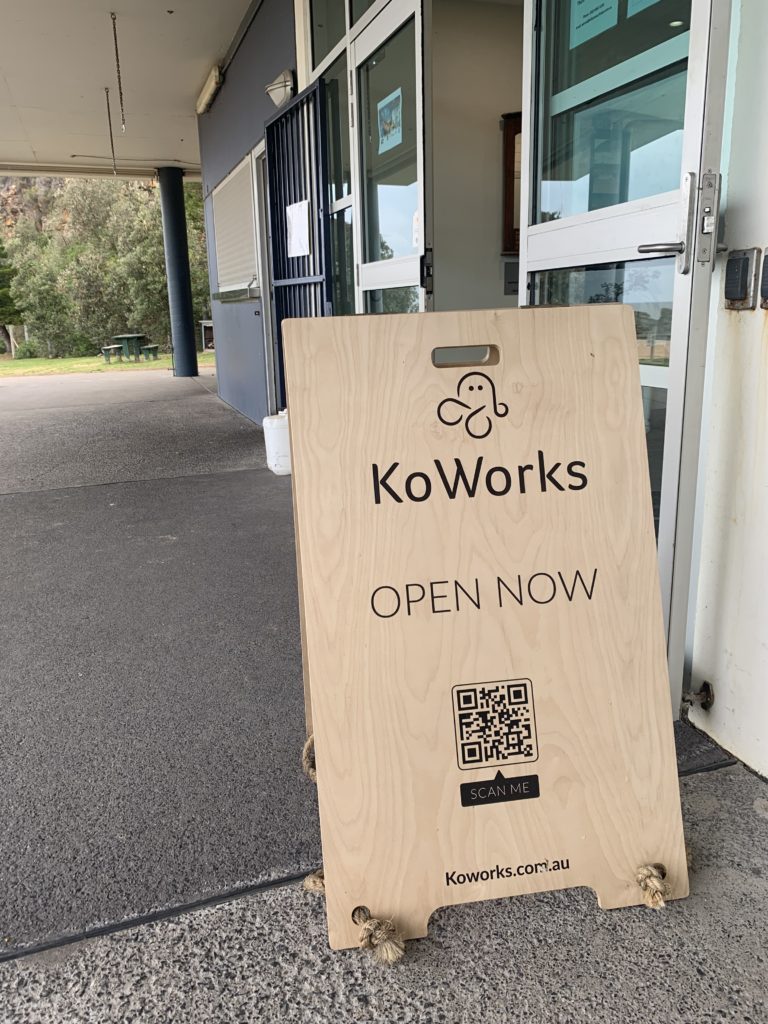The concept of coworking spaces in regional centres has seen a huge surge in the wake of COVID-19 induced lockdowns, with many Central Coast workers now choosing to work that way rather than face the huge commute to Sydney or Newcastle.
Mel Archer established her first coworking space, The Foundry, at Erina in November 2018 after returning from New York, wanting a fun, cool space to work away from home.
She opened a second space in Gosford in June this year and next month plans to expand it with a second floor.
Archer said there was a huge demand for coworking spaces with long-time residents and a huge influx of people moving to the region from Sydney no longer prepared to commute for hours to work after experiencing the benefits of working closer to home.
“I don’t think it would have happened without COVID,”
“There was always such a resistance from employers to allow workers to work from home or remotely at all.
“But the lockdowns saw a huge shift in attitude when employers were forced to allow staff to work from home and saw it could work.
“And now employees are putting their foot down.
“They worked away from the office during lockdowns and they want to continue doing that.
“Many who had a year or two working from their own homes found it was not all it was cracked up to be and felt they needed a bit of separation from home and work.”
This created the perfect conditions for coworking spaces to thrive.
“Employers are ringing coworking spaces like mine to set up team sections,” she said.
“In fact, the new second floor in Gosford will be all private offices for various companies, where several workers from the same company can work collaboratively.”
A coworking space is the perfect compromise between commuting to Sydney or working from the spare bedroom.
The Foundry is just one of a growing number of cowork hubs springing up across the region.

Flexible Workspace Australia (FWA), a new and dynamic industry association representing 254 coworking spaces in Australia and New Zealand, recently released its Flex Futures Report 2023, which reflects a remarkable surge in coworking spaces all over Australia in the past decade.
Conducted by Startupsaus.cos.co in partnership with FWA, the report reveals 784 flexible spaces, with 382 in capital cities, 172 in suburban areas and 230 in regional locations.
Over 80 per cent of flexible spaces in Australia are owned by independent private operators, while the rest are evenly distributed among governments, corporates and universities.
“The report vividly illustrates coworking spaces as vibrant hubs for collaboration, growth and fostering strong communities,” FWA Chair and founder of Hub Australia Brad Krauskopf said.
“Our industry leads in intersecting mega-trends shaping the future of work.
“These spaces play a pivotal role in driving economic and community development, promoting industry diversification and attracting crucial investments.”
The report, compiled by industry experts and thought leaders, provides deep insights for flexible workspaces in Australia, guiding operators, entrepreneurs, investors and policymakers.
It includes case studies, unique value propositions, cost structures and returns on investment.
A significant milestone is the establishment of the FWA National Benchmark, aiming to enhance decision-making, drive investment and increase investor confidence by discerning trends and identifying information gaps.
Incoming co-chair of FWA and founder of WorkLife regional coworking spaces, Kate Dezarnaulds, said coworking space owners and operators are ecosystem curators, fostering professional and personal growth.
“Beyond standard amenities, they prioritise hospitality and community, creating a sense of belonging,” she said.
“Coworking communities support innovation through business support services, events, streamlined tech processes and opportunities for informal collaboration- this has been a game changer for economic development in suburban and regional economies.”
The report is available on the FWA website; https://flex.org.au
Terry Collins


